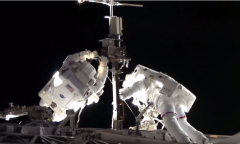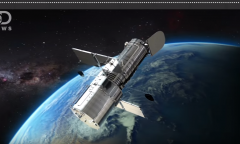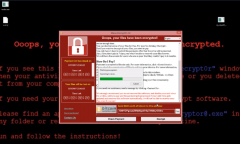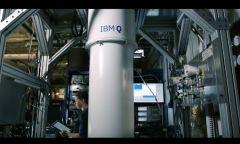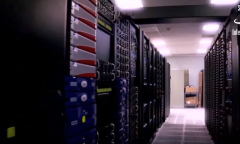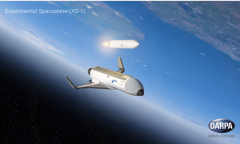By Prei Dy, | May 30, 2017
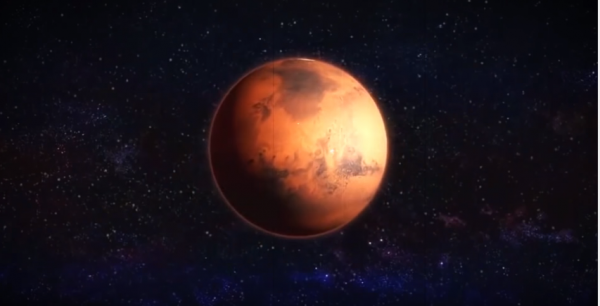
A Russian scientists patented potential methods to make an atmosphere on Mars. (YouTube)
A Russian scientist wants to colonize Mars, patenting an invention to create an atmosphere in the Red Planet that will help control the weather.
Aleksandr Popov, a member of the International Academy of Science, plans to utilize Mar's polar caps, which are made of carbon dioxide and ice. "With the help of a concentrated solar power system, it can be converted into steam, which is further transformed into a mist of clouds," the told Russian newspaper Rossiyskaya Gazeta as cited by Sputnik News.
Like Us on Facebook
The scientist said that these polar caps melt about once in every two years, changing into a gaseous state while the ice remains on the surface.
Popov also patented a way to create an ozone shield in Mars. He suggested to fill the Martian atmosphere with carbon dioxide to help increase the planet's temperature and create a more favorable environment.
He also suggested of using an iron rope releasing nitric acid. Dust particles will help the cable generate electricity by friction during Martian dust storms. The electric discharge will then trigger decomposition of carbon dioxide to carbon monoxide and oxygen. Such process will eventually lead to the creation of an ozone layer.
Popov believes that the colonization of Mars may begin over the next two or three decades. Currently, the researchers is trying to enhance the efficiency of his inventions and make them more affordable and practical.
Meanwhile, Russia has also been testing samples of plankton and other microorganisms from outside of the International Space Station to find any traces that could point to the existence of alien or extra-terrestrial life forms.
At least 19 dust samples have been collected from the ISS surface during space walks since 2010 under the experiment called "Test," although it may take some time to yield results. But a test result from 2013 revealed that some microorganisms indeed thrive on the outside of the ISS and even on hostile space conditions like vacuums, extreme temperatures, and harsh cosmic radiation.
-
Use of Coronavirus Pandemic Drones Raises Privacy Concerns: Drones Spread Fear, Local Officials Say

-
Coronavirus Hampers The Delivery Of Lockheed Martin F-35 Stealth Fighters For 2020

-
Instagram Speeds Up Plans to Add Account Memorialization Feature Due to COVID-19 Deaths

-
NASA: Perseverance Plans to Bring 'Mars Rock' to Earth in 2031

-
600 Dead And 3,000 In The Hospital as Iranians Believed Drinking High-Concentrations of Alcohol Can Cure The Coronavirus

-
600 Dead And 3,000 In The Hospital as Iranians Believed Drinking High-Concentrations of Alcohol Can Cure The Coronavirus

-
COVID-19: Doctors, Nurses Use Virtual Reality to Learn New Skills in Treating Coronavirus Patients



